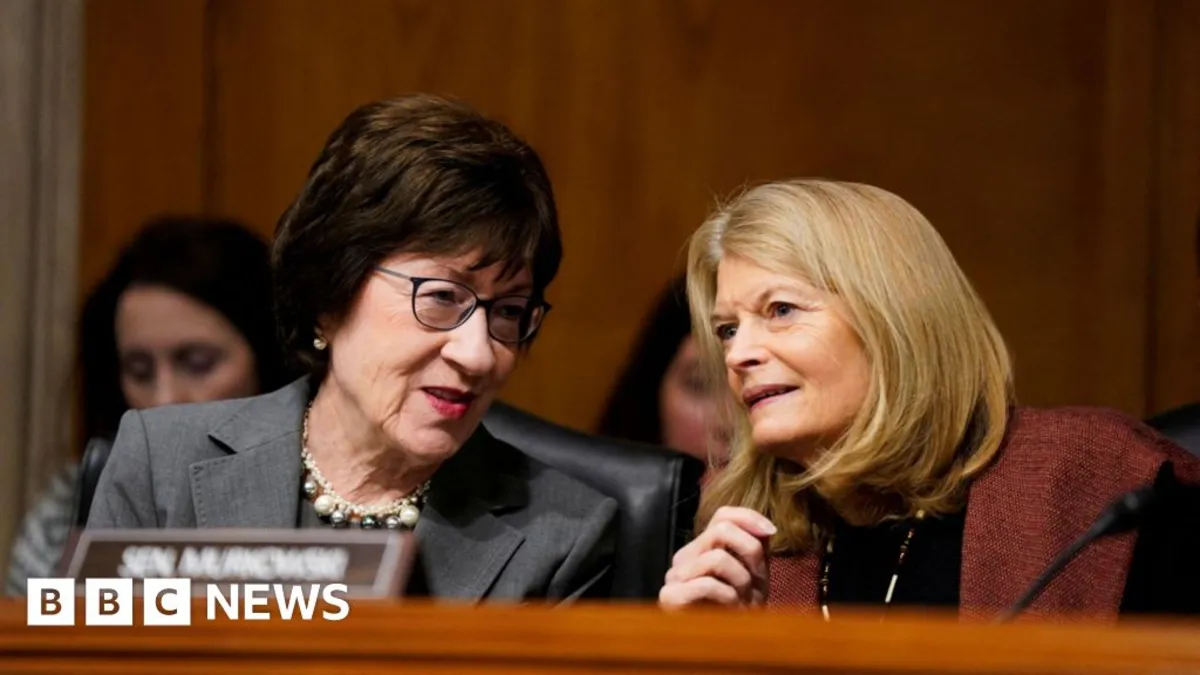
In a surprising move, four Republican US senators have defied President Donald Trump's administration by voting alongside Democrats to block his controversial tariffs against Canada. This rare act of dissent came as Senators Lisa Murkowski, Mitch McConnell, Rand Paul, and Susan Collins supported a resolution that aims to terminate Trump's emergency declaration regarding fentanyl trafficking, which he has leveraged to impose tariffs on Canadian imports.
The resolution passed with a close vote of 51 to 48, showcasing a significant moment of opposition within the Republican Party. Despite the victory in the Senate, the resolution is largely symbolic, as it is expected to face challenges in the Republican-controlled House of Representatives and is unlikely to receive President Trump’s approval.
Mitch McConnell, who recently stepped down as the Senate's longest-serving Republican leader, expressed his concerns about the implications of tariffs, stating, “As I have always warned, tariffs are bad policy, and trade wars with our partners hurt working people most.” His comments highlight the negative impact that such tariffs could have on American families.
Senator Tim Kaine, a Democrat from Virginia and the leader of the resolution, criticized the tariffs imposed on Canada, which currently include a 25% levy on steel and aluminum. Following the vote, he emphasized that these tariffs are not merely a response to fentanyl trafficking but are instead an unfair burden on American families, labeling them as a “national sales tax.”
Along with Murkowski and Collins, who represent states bordering Canada, Senator Rand Paul from Kentucky also co-sponsored the legislation. He articulated his views on the economic repercussions of tariffs, stating, “Tariffs raise prices and are a bad idea for the economy. We are richer because of trade with Canada, and so is Canada.”
In response to the senators' vote, President Trump took to his Truth Social platform to criticize them as “extremely difficult to deal with” and “unbelievably disloyal.” This reaction underscores the tension between the Trump administration and certain factions within the Republican Party.
Every Democrat present in the Senate also voted in favor of the resolution, aligning against Trump’s tariff policies. Democrats argue that the president is using these tariffs as a means to finance proposed tax cuts benefiting the wealthy while simultaneously raising costs for everyday Americans.
On the same day as the Senate vote, President Trump outlined a new set of tariffs, notably excluding Canada from the latest measures due to its previous tariff impositions. However, it remains uncertain whether the new 25% tax on Americans importing foreign-made cars will affect Canadian trade significantly. This potential tax could have profound implications for the Canadian economy and US-Canada trade relations.
As the situation continues to evolve, the debate surrounding Trump's tariffs against Canada is set to remain a contentious issue within the political landscape, impacting both economic policies and international relations.